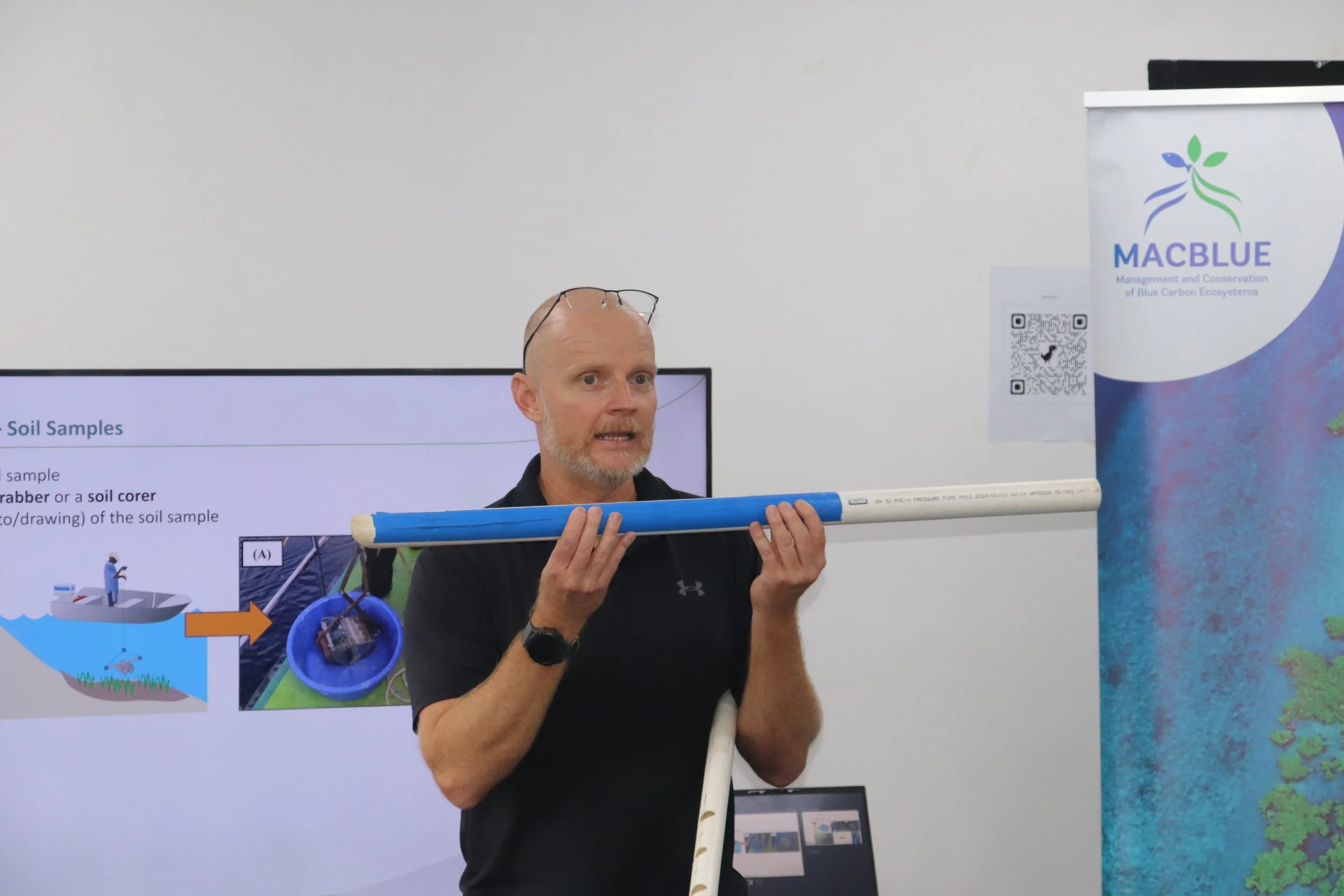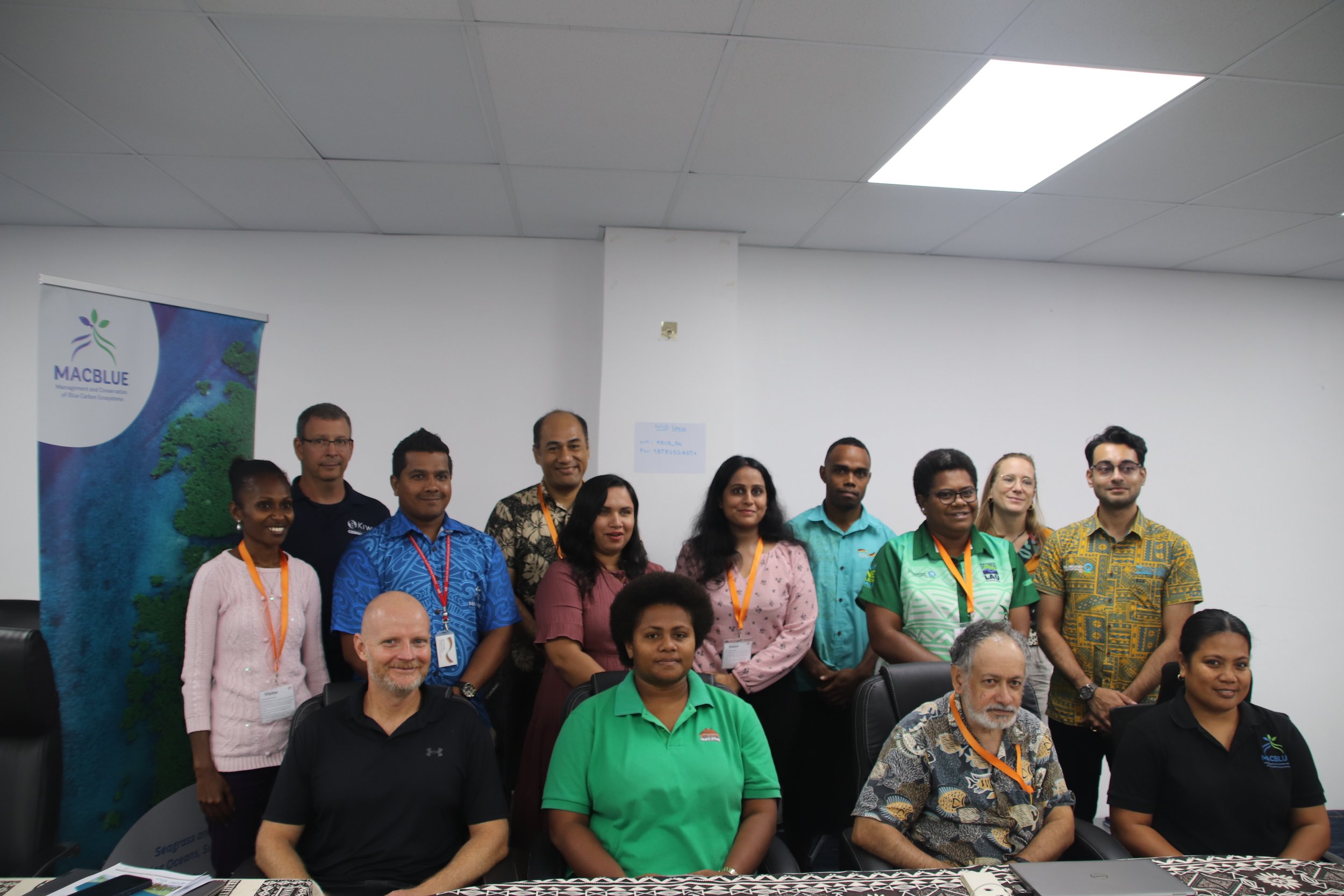Strengthening national capacity in Blue Carbon assessments in Fiji
Coastal Ecologist Dr. Paul Maxwell of EcoFutures and Alluvium International Ltd
24 March 2024 – Blue carbon is the organic carbon captured and stored in vegetated coastal ecosystems, especially mangroves, seagrass and tidal marshes. Due to their high sequestration rates, they are a valuable tool in climate change mitigation.
In Fiji, conservation practitioners have expanded their knowledge base in blue carbon through a carbon assessment capacity building workshop. Held on 12 March 2025, the workshop was hosted by the Secretariat of the Pacific Regional Environment Programme (SPREP) through the Management and Conservation of Blue Carbon Ecosystems (MACBLUE) project, and was facilitated by Coastal Ecologist Dr. Paul Maxwell of EcoFutures and Alluvium International Ltd.
MACBLUE Project Coordinator Turang Teuea highlighted the importance of the workshop in teaching participants the principles behind blue carbon assessments, while offering practical experience in blue carbon sampling.
“The importance of blue carbon ecosystems in combating climate change cannot be overstated. Equipping local conservation officials with the skills to assess these ecosystems is a step forward for safeguarding Fiji's blue carbon ecosystems,” Ms Teuea said.
The one-day workshop was attended by stakeholders from the Ministry of Environment and Climate Change, WWF Pacific, Conservation International, the University of the South Pacific, Itaukei Affairs Board, GIZ Pacific, and SPREP. The workshop featured an indoor theoretical session followed by a practical exercise at the Nasese foreshore, where participants experienced firsthand the types of data collection required for an assessment.
The one-day workshop was attended by stakeholders from the Ministry of Environment and Climate Change, WWF Pacific, Conservation International, the University of the South Pacific, Itaukei Affairs Board, GIZ Pacific, and SPREP.
The workshop featured an indoor theoretical session followed by a practical exercise at the Nasese foreshore, where participants experienced firsthand the types of data collection required for an assessment.
Workshop participant Rewa Provincial Conservation Officer Ms Maria Dali shared about the lessons learned from the workshop.
“I came into this training with very little knowledge of a carbon stock assessment. I had heard of blue carbon assessment but never understood the technical processes behind it. This workshop has been incredibly enlightening, and I look forward to participating in more of these workshops ,” Ms Dali said.
GIZ Pacific Project Assistant Semi Balecala who also attended the training shared his key takeaways from the workshop.
“Through both the theory and practical aspects of the training, I learned that the width of a mangrove forest is more important for reducing wave strength than the density of the mangrove trees themselves”.
“In the case of seagrasses, I learned that the sediments play a far more critical role in storing carbon compared to the biomass of the seagrass itself. This highlights the importance of safeguarding the entire ecosystem, and not just the visible plant life, for carbon storage and climate mitigation,” Mr Balecala shared.
The training is part of a series of blue carbon activities under the MACBLUE project in Fiji. The others include the recently completed carbon stock assessments for the mangrove and seagrass ecosystems at 20 different sites across Viti Levu and Vanua Levu.



